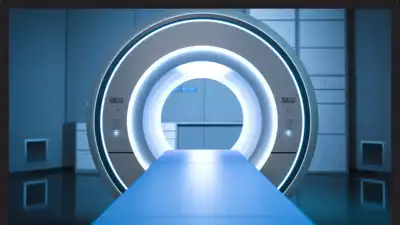MRI scans are among the latest imaging technologies in contemporary medicine. They’re commonly used to identify a variety of conditions, ranging from brain tumors to spinal problems. But are they safe for all? Dr. Sudhir Kumar, a well-known Hyderabad-based neurologist, explains the most critical things you need to know before you enter an MRI machine.
Metals in your body can be hazardous
MRI machines employ powerful magnetic fields, which can cause metal objects in your body to respond adversely. This might include pacemakers, cochlear implants, surgical clips, or even shrapnel. If you have metal implants, you need to inform your doctor beforehand. Occasionally, other imaging techniques, such as CT scans might be suggested for your protection.
Pregnancy and MRI are a big NO!
MRIs do not employ radiation, so they are safer to use during pregnancy than X-rays. Nonetheless, physicians will normally avoid performing MRI scans in the first three months unless it is medically necessary. If a contrast dye is required, the risk is even greater. Pregnant patients must always notify their physician so the scan may be postponed or adjusted if necessary.
Contrast dye is not for everyone
A few MRIs employ contrast dye to help show up specific areas of the body. Although it aids in obtaining more distinct images, the dye can be problematic in individuals with kidney disease or allergic reactions. Dr. Kumar recommends having kidney function tests prior if there’s a question. Always inform your medical history and allergies prior to the scan.
Claustrophobia is a real concern
Most individuals are nervous or panicked within the confining MRI tube. The confining space, in addition to the loud sounds, is overwhelming, particularly with individuals with claustrophobia. Dr. Kumar recommends talking to your physician if you are apprehensive. Mild sedatives or open MR machines can be employed to make it more tolerable.
While inside, the machine can get louder
One surprise that most are not prepared for is the thumping and knocking noises made during an MRI test. They are normal, but startling. Hospitals will generally offer earplugs or headphones to minimize discomfort. If you are sensitive to noise, request ahead of time a noise-cancelling feature or soothing music to assist in the ease of the procedure.
